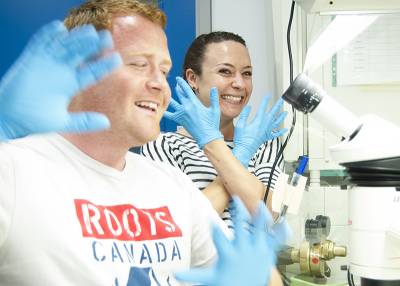The application process can be split into five steps:
1: Check UCL’s entry requirements
A first or upper-second class UK Bachelor’s degree in an appropriate subject, or an overseas qualification of an equivalent standard from a recognised higher education institution, or a recognised taught Master’s degree.
Overseas students will be expected to hold an equivalent qualification and demonstrate mastery of the English language at 'Standard' level (as described by the UCL Graduate English Language Requirements).
2: Investigate research opportunities across UCL
There are two main types of research degree opportunities:
PhD Studentships provide funding that cover tuition fees, student living expenses and often some research expenses. Usually they will have been awarded to specific supervisors or programmes. They are advertised throughout the year so you will need to regularly check relevant websites.
- Find a PhD is a comprehensive guide to PhD studentships and postgraduate research degrees.
- Ear Institute PhD studentships will be advertised on our website and on the UCL main site list.
- Some cross university schemes such as the LIDO PhD scheme also offer opportunities.
Speculative opportunities - If you can’t find a studentship in a research project that interests you or you have your own funding, the best way to find a PhD project is to approach a potential supervisor directly. Exceptional students, that meet the entrance requirements, are encouraged to be proactive to identify opportunities with UCL academics whose recent research closely matches their interests.
A summary of the research interests of each of our supervisors can be found on our Principal Investigators page and a more detailed description on the webpage of each principal investigator.
You may also wish to:
- browse the UCL's online Graduate Prospectus to find centres of research in your area of interest. Click through to the department or centre website to find staff profiles.
- search our online research repository (UCL Discovery) where UCL’s research papers are published, subject to approvals. If you identify a research paper that particularly interests you it is likely that one of the authors would be a suitable research supervisor.
If an academic is very impressed with your research experience and proposal they may be able to help you to identify sources of funding. There are also UCL scholarships that they can nominate you for.
3: Making a research enquiry
All prospective applicants for study at the Ear Institute, except those applying for advertised studentships, are encouraged to send an "expression of interest". This should either be sent directly to the academic you are interested in working with or the Post Graduate Admin team.
Supervisors
- Summaries of the research interests of each of our supervisors can be found in the "supervisors" tab
- Overview of our PIs webpages (with more detailed descriptions of their work and interests).
Approach the supervisor as early as possible- even a year in advance, they may be applying for funding and might be interested in nominating someone for the studentship if they identify a good candidate.
Making a research enquiry helps define your interests, contributes to making your application successful, and also serves to ensure the identification of the best possible supervisor for your needs.
4: Submit a formal application
Once you have found a supervisor, agreed a research project and have funding in place you will need to go through the formal admissions process for entry to UCL.
You will need to complete:
- The standard UCL graduate application form
- A Research Proposal of 1000-1500 words in length should be created in conjunction with your proposed supervisor. It should be submitted with the UCL graduate application form. This is an extremely important part of your formal application. It should clearly state the research question, and its importance. It should provide the specific details of experimental or other kinds of studies and data that will be used to address the research question. Logical thinking, clear design of research studies, and relevant methodological knowledge are all key parts of a good research proposal. Where appropriate, the research proposal should explain how initial experiments or studies will lead onto further questions and studies in a coherent progression. The research proposal should be your own work, though the supervisor may give some advice. The word limit (minimum 1000 words, maximum 1500 words) includes all sections and appendices. Only key references rather than a lengthy reference list should be included.
You will also need to submit a transcript for previous qualifications, references and, where applicable, an English Language test certificate.
Applications are accepted throughout the year and studentships can commence at any time. However, the majority of students begin their studies in September.
Questions about the application process can be directed to the Postgraduate ResearchAdministration Team, via ear.pgradmin@ucl.ac.uk.
5: Await decision
Once accepted, you will receive an offer letter.
 Close
Close


